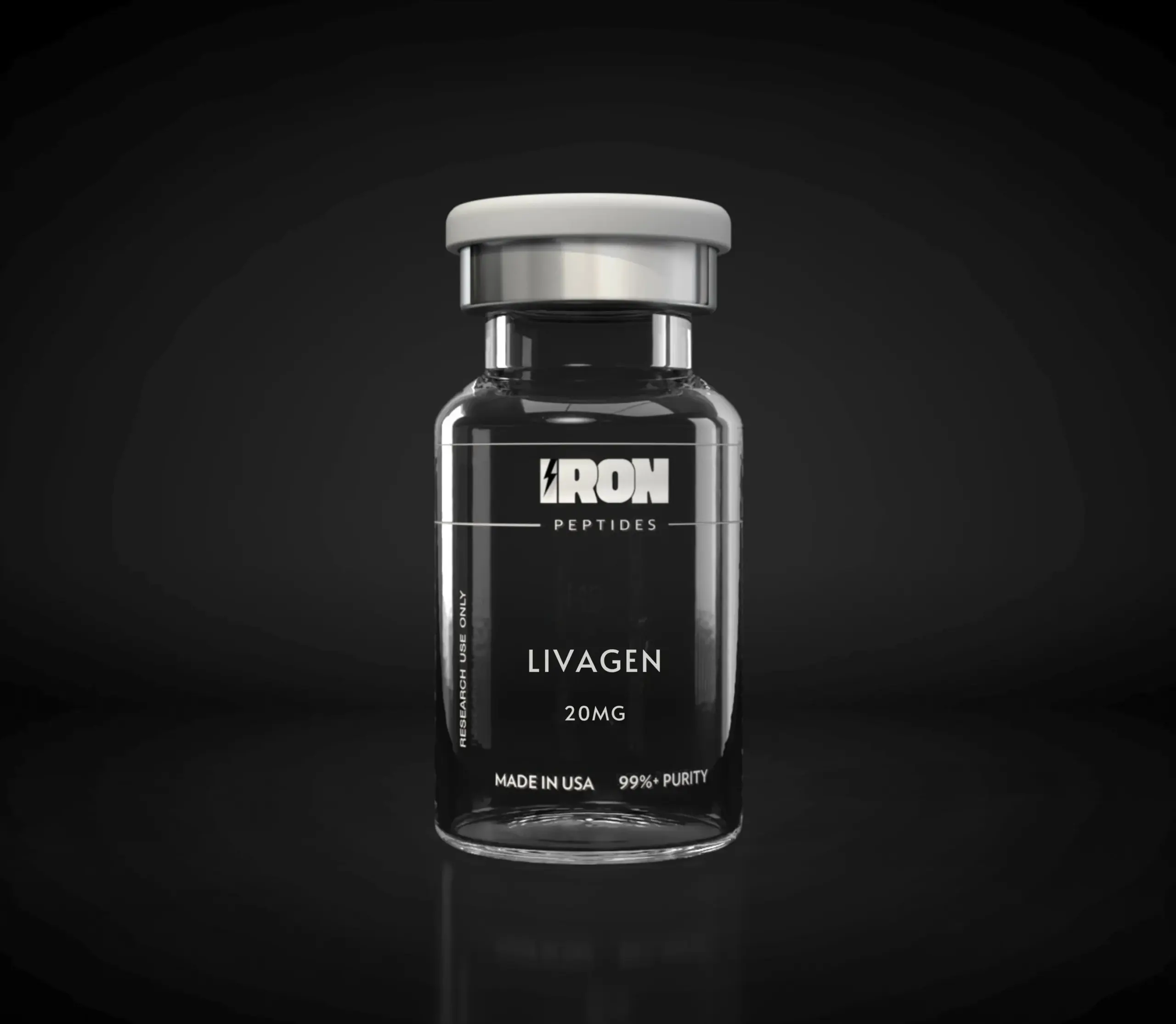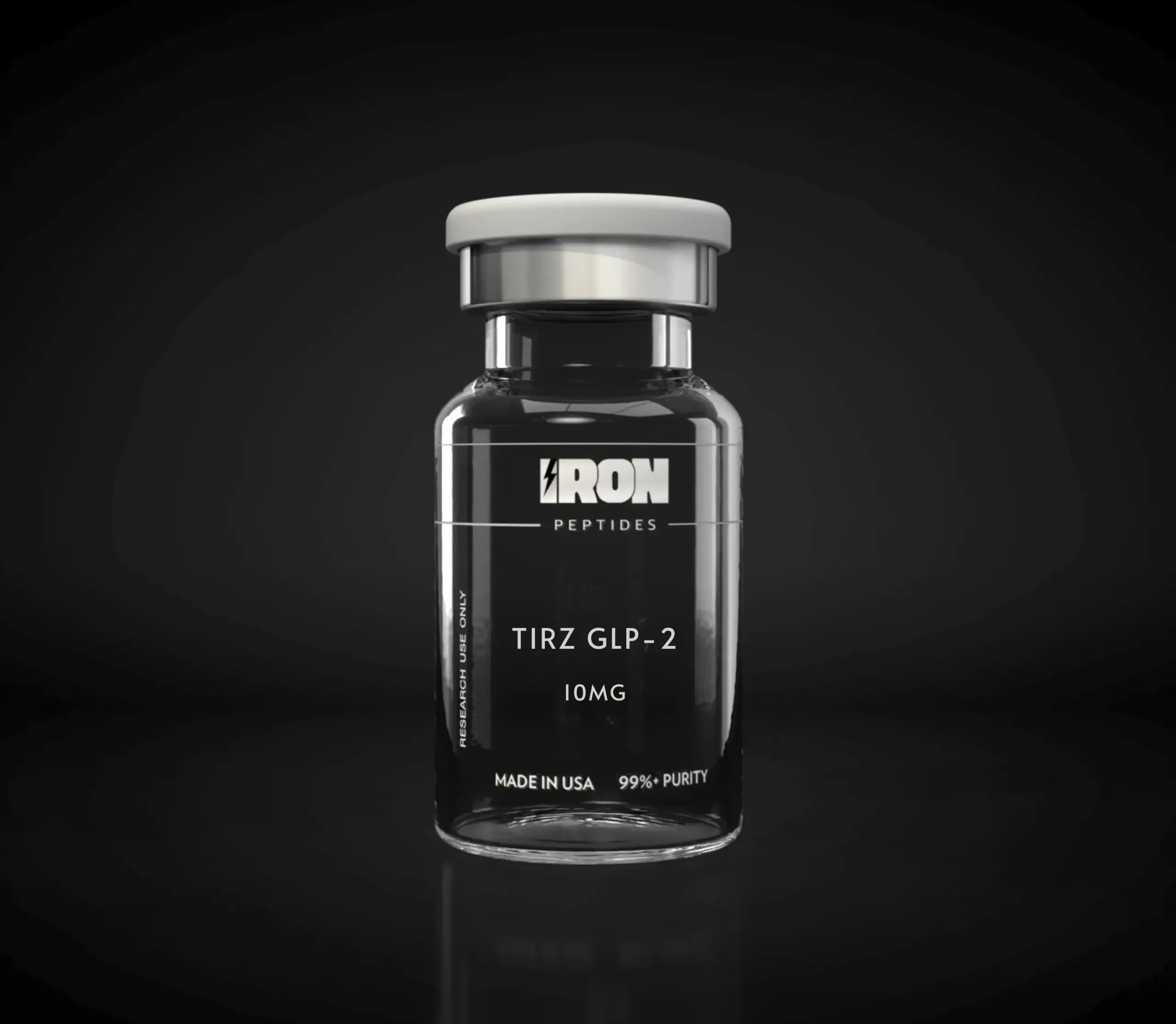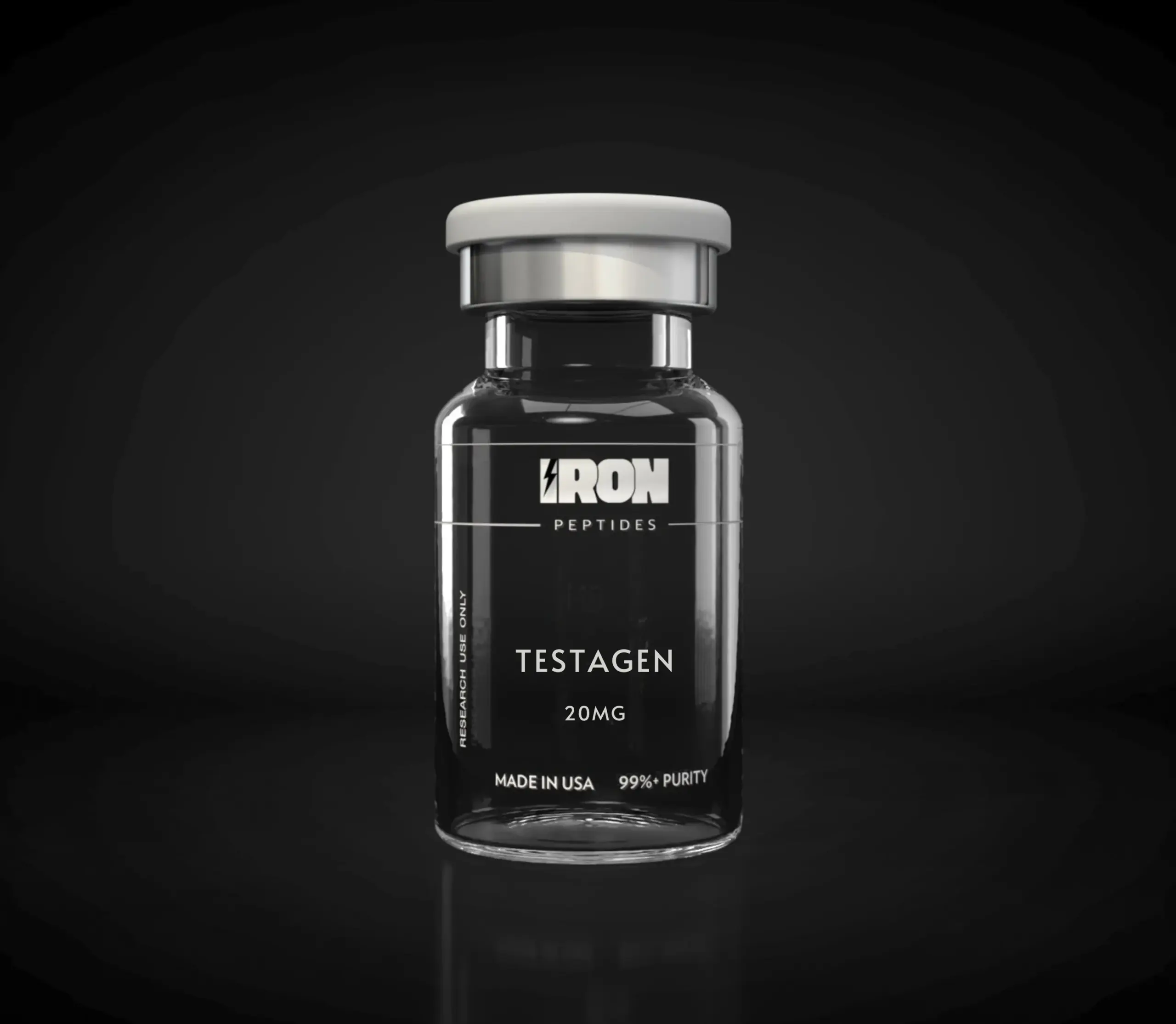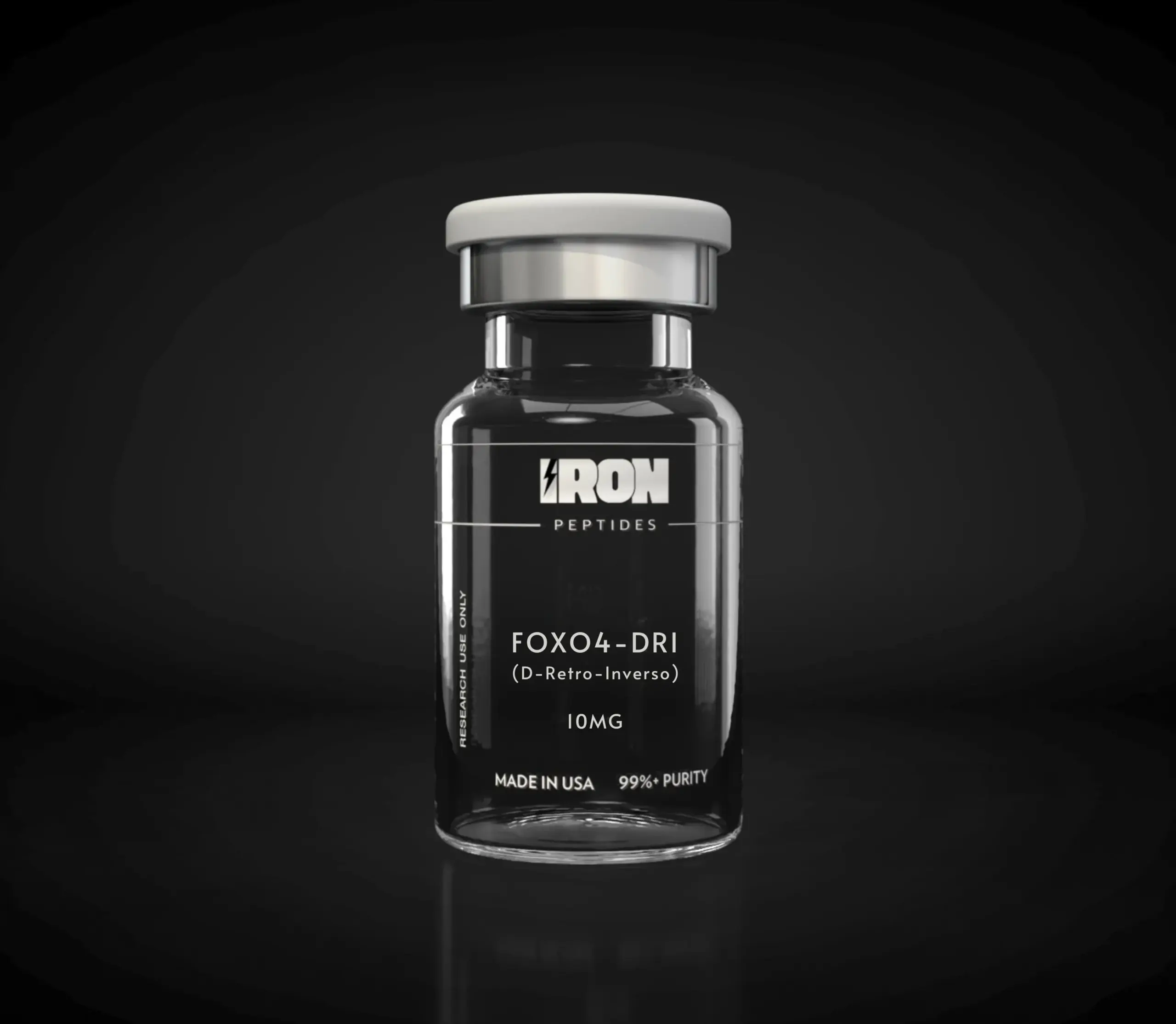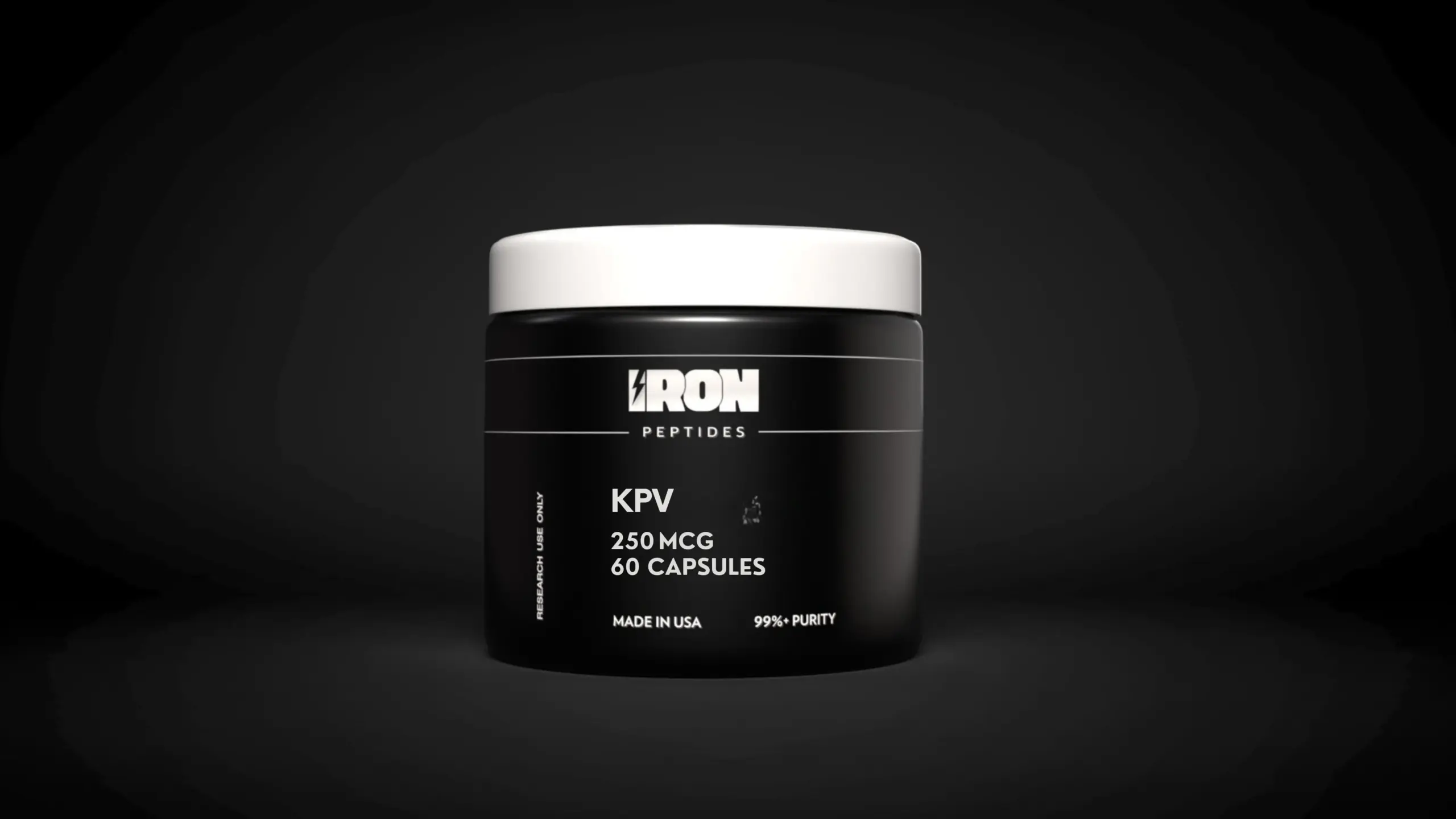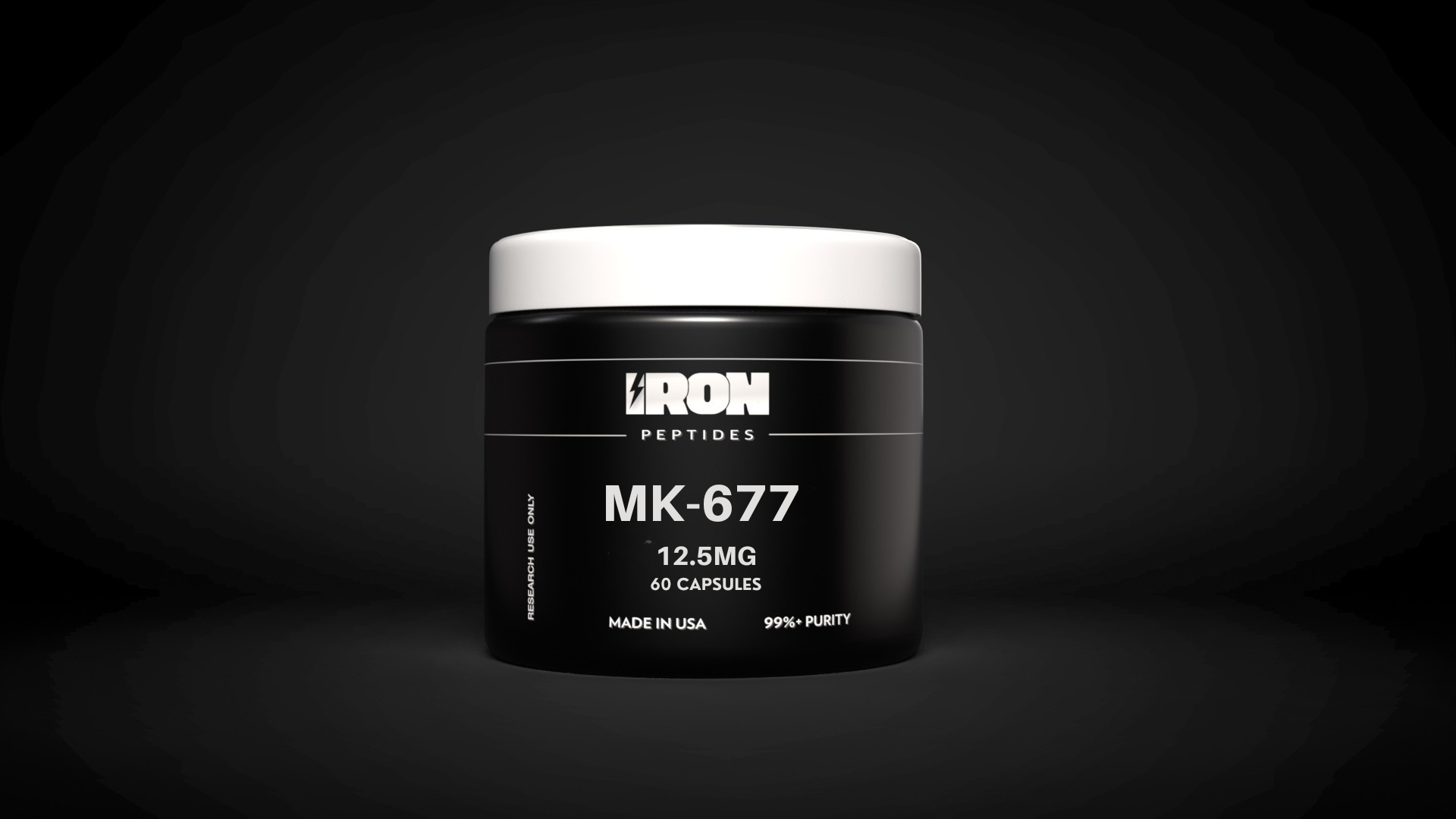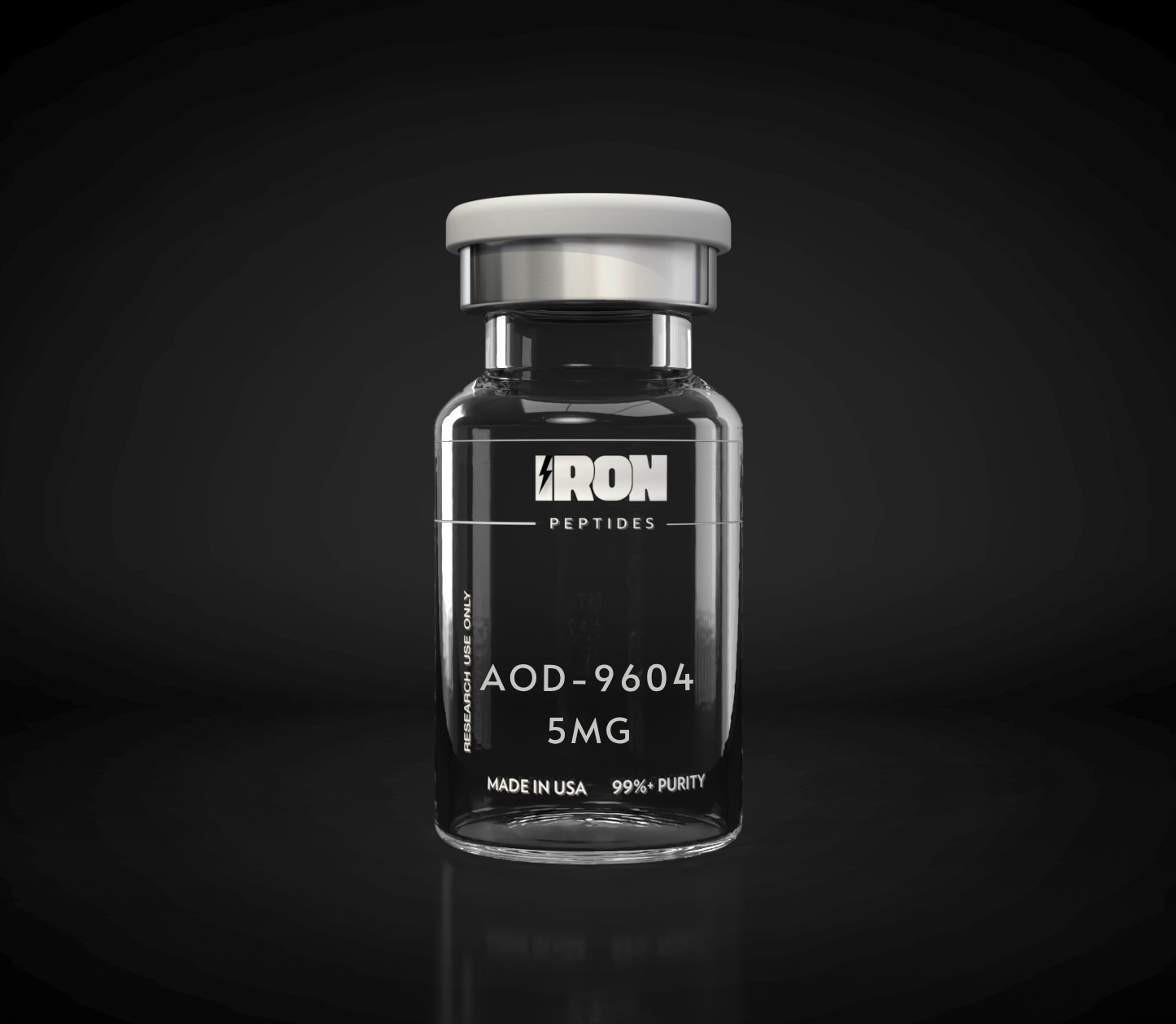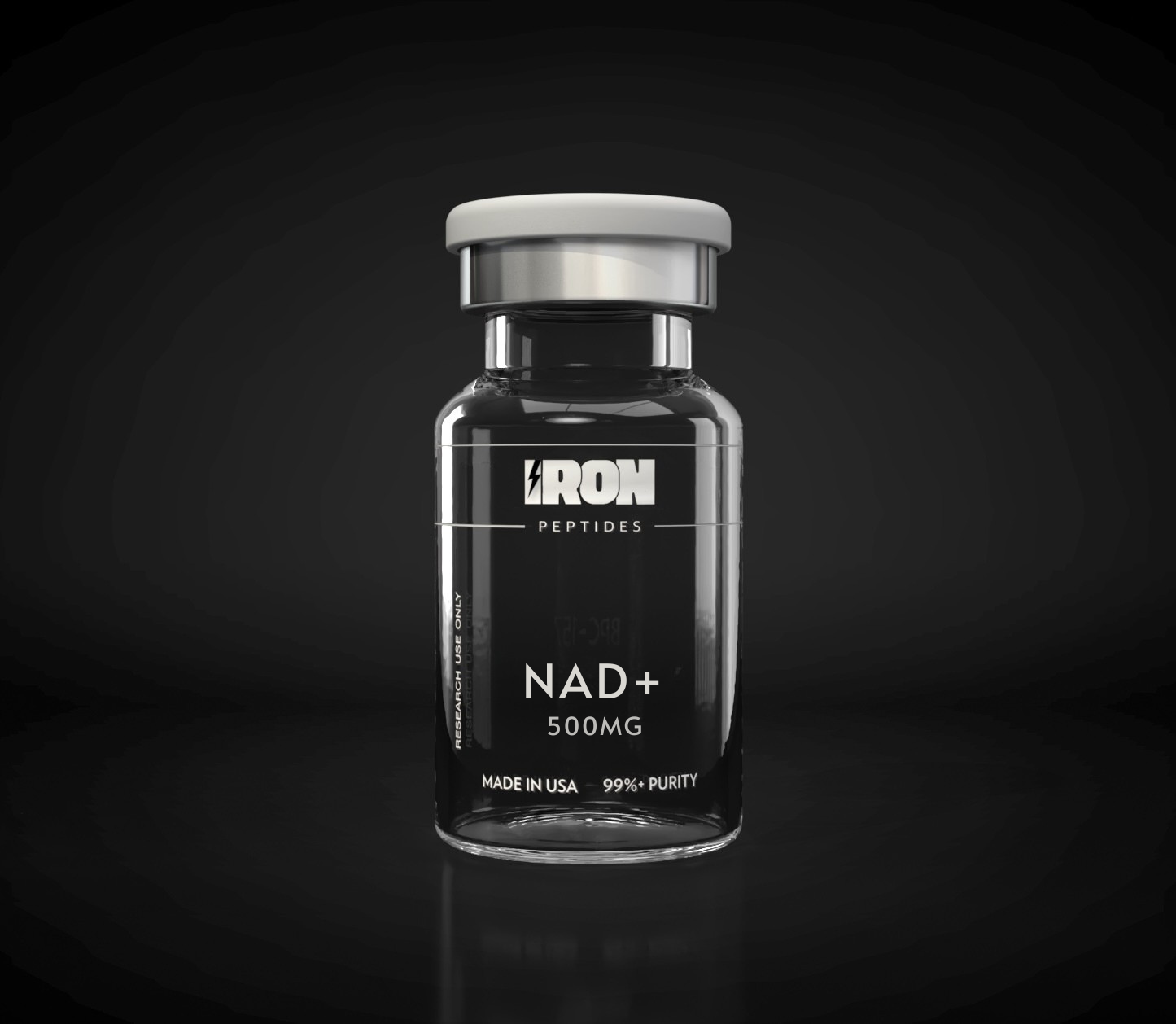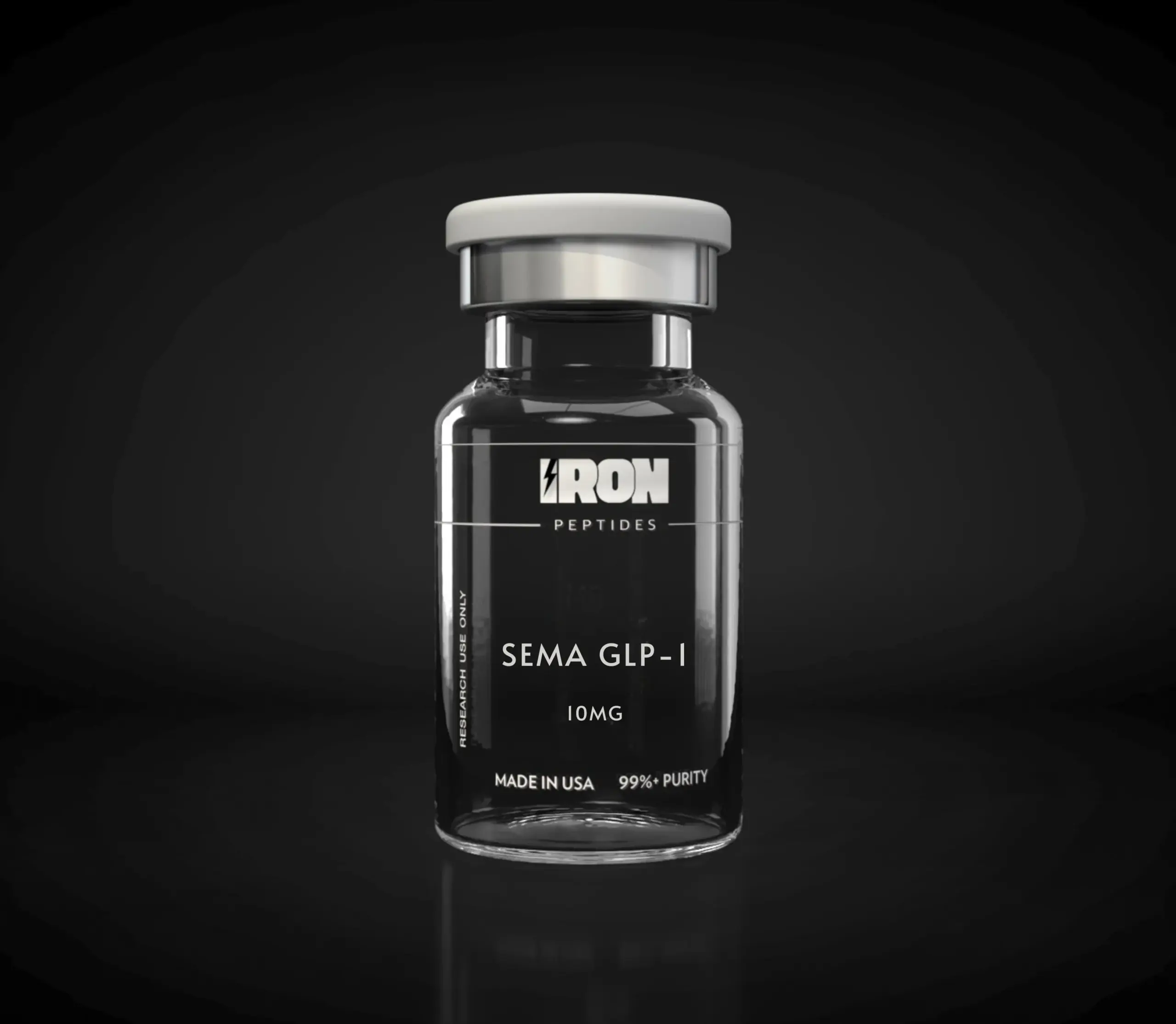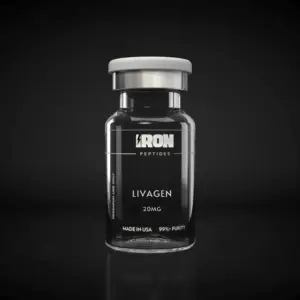Livagen 20 MG
$79.99
Shipping Calculated at checkout.
Availability: 99 in stock
FREE SHIPPING
99%+ PURITY
MADE IN USA
Vial
- Mazdutide 10MG
- AICAR 50MG
- Lipo-C 10ML
- Survodutide 10MG
- LC-526 Metabolic Complex
- SSJ-9 Amino Matrix
- Epitalon
- L-Carnitine 600MG / 10ML
- Cerebrolysin 60MG
- Oxytocin 5mg
- SELANK
- 5-Amino-1MQ
- VIP
- L-Glutathione 1500MG
- Acetic Acid Solution
- HCG 10000iu
- BAC Water 30ML
- BAC Water 10ML
- GLOW 70MG
- IGF-1 LR3 1MG
- Thymalin
- HCG (5000iu)
- Wolverine Stack Peptides – BPC-157 (5mg) / TB-500 (5mg)
- BAC Water 3ML
- Melanotan II (MT-2) 10MG
- SLU-PP-332 (5MG)
- KPV 10MG
- GHK-Cu
- KLOW 80 – GHK-Cu (50mg) / KPV (10mg) / BPC-157 (10mg) / TB500 (10mg)
- Gonadorelin
- L-Glutathione (200MG)
- SEMAX (10MG)
- Cagrilintide (10MG)
- DSIP – Delta Sleep‑Inducing Peptide (5MG)
- RETA GLP-3
- Kisspeptin-10
- Ipamorelin / CJC-1295 No Dac 10mg
- Tirz GLP-2
- L-Glutathione (500mg)
- Pancragen 20 MG
- Prostamax 20 MG
- Livagen 20 MG
- Testagen 20 MG
- CardioCytogen 20 MG
- TB-4
- ARA‑290 10mg
- FOXO4-DRI (D-Retro-Inverso) 10mg
- SS-31 (10MG)
- Tesamorelin (10MG)
- AOD-9604
- IPAMORELIN 10MG
- PT-141 10MG
- NAD+
- TB-500 10MG
- SEMA GLP-1
- MOTS-C 10MG
- CJC-1295 (10MG)
- BPC-157 (10MG)
IRON
- Mazdutide 10MG
- AICAR 50MG
- Lipo-C 10ML
- Survodutide 10MG
- Methylene Blue 20MG
- 5-Amino-1MQ Capsules 50mg 60 cap
- LC-526 Metabolic Complex
- SSJ-9 Amino Matrix
- MITOCHONDRIAL POWER STACK
- SHRED MATRIX X4
- ANABOLIC SIGNALING MATRIX X3
- L-Carnitine 600MG / 10ML
- Cerebrolysin 60MG
- Oxytocin 5mg
- SELANK
- 5-Amino-1MQ
- VIP
- L-Glutathione 1500MG
- Acetic Acid Solution
- HCG 10000iu
- BAC Water 30ML
- BAC Water 10ML
- GLOW 70MG
- IGF-1 LR3 1MG
- Thymalin
- HCG (5000iu)
- Wolverine Stack Peptides – BPC-157 (5mg) / TB-500 (5mg)
- BAC Water 3ML
- Melanotan II (MT-2) 10MG
- SLU-PP-332 (5MG)
- KPV 10MG
- GHK-Cu
- KLOW 80 – GHK-Cu (50mg) / KPV (10mg) / BPC-157 (10mg) / TB500 (10mg)
- Gonadorelin
- L-Glutathione (200MG)
- SEMAX (10MG)
- Cagrilintide (10MG)
- DSIP – Delta Sleep‑Inducing Peptide (5MG)
- RETA GLP-3
- MK-ULTRA (MK-777)
- Kisspeptin-10
- Ipamorelin / CJC-1295 No Dac 10mg
- Tirz GLP-2
- L-Glutathione (500mg)
- N-Acetyl Selank Spray (30mg) 10ml
- N-acetyl Semax Spray (30mg) 10ml
- Pancragen 20 MG
- Prostamax 20 MG
- Livagen 20 MG
- Testagen 20 MG
- CardioCytogen 20 MG
- TB-4
- ARA‑290 10mg
- FOXO4-DRI (D-Retro-Inverso) 10mg
- KPV 250 MCG (60 Capsules)
- SLU-PP-332 (60 capsules, 250MCG)
- SS-31 (10MG)
- Tesamorelin (10MG)
- MK-677 12.5MG (60 capsules)
- AOD-9604
- IPAMORELIN 10MG
- Healing and Repair Research Blend (60 capsules)
- BPC-157 250MCG (60 capsules)
- Tesofensine 500MCG (100 capsules)
- PT-141 10MG
- NAD+
- TB-500 10MG
- SEMA GLP-1
- MOTS-C 10MG
- CJC-1295 (10MG)
- BPC-157 (10MG)

What is Livagen 20 MG?

Chemical Structure of Livagen 20 MG
Molecular Formula: C18H31N5O9
Molecular Weight: 461.5 g/mol
Other Known Titles: KEDA

What Are the Effects of Livagen 20 MG?
Livagen and Gene Regulation
Cardiac disorders such as hypertrophic cardiomyopathy (HCM), atherosclerosis, and cardiac injury are considered to be characterized by dysregulation in gene expression and chromatin structure. A bioregulatory peptide such as Livagen has been suggested by researchers to enact potential mitigation of such gene regulation dysfunctions. Studies(4,5) have suggested that Livagen peptides may help reduce specific long-term impacts of such conditions when applied to cell culture models of HCM. A publication related to the same study(6) also reported on the potential of the peptide’s exposure in the presence of cobalt ions to evaluate their combined potential on chromatin structures in experimental models of hypertrophic cardiomyopathy. The study suggested that this combination possibly induces the de-condensation of chromatin. The results of this study are stated to be critical “because it provides new information about the protective effect of Livagen and Livagen + Cobalt ions on the lymphocytes” in hypertrophic cardiomyopathy models.(6) Livagen, either alone or in combination with cobalt ions, appears to modify the activity of nucleolar organizer regions (NORs) and the associative behavior of acrocentric chromosomes. The study posits that the combined application of Livagen and cobalt ions increases frequency, scoring 2 NORs, which are integral to ribosomal RNA synthesis. Such an action on NORs may indicate enhanced or altered protein synthesis capabilities in these cells, which might be crucial in understanding how cellular function is modified in the context of cardiac hypertrophy seen in HCM. Additionally, an increase in the association of acrocentric chromosomes was noted, which is speculated to be more pronounced with the combined exposure of Livagen and cobalt ions compared to each agent alone. This phenomenon might reflect changes in the chromatin state, specifically the decondensation of heterochromatin. The study suggests that this chromatin remodeling might facilitate the exposure and possible transcriptional activation of previously inactivated genes within these regions.
Livagen and Nociception
Enkephalins are considered to be naturally occurring neurotransmitters that may bind with mu- and delta- receptors and reduce pain signal transmission. Bioregulatory peptides such as Livagen may possibly act on enzymes and prevent the degradation of these neurotransmitters, possibly increasing enkephalin levels. The activity of these degrading enzymes was assessed in vitro, based on the rate of hydrolysis of 3H-Leu-enkephalin, a labeled enkephalin peptide.(7) The study also explored whether Livagen might interact directly with mu- and delta- receptors in the brain, using a radioreceptor method with the tracer [3H][D-Ala2, D-Leu5]-enkephalin. This component of the study posited that there appeared to be no observable interaction between Livagen and the mu- or delta-opioid receptors of the membrane fraction from murine models’ brains. This outcome suggests that while Livagen may influence opioid peptide levels by inhibiting their degradation, it does not appear to directly bind or affect opioid receptors in the brain.
Livagen and Antioxidant Systems
A study explored the potential hepatoprotective and immunoprotective properties of the Livagen, particularly in liver fibroid induration and both acute and chronic hepatitis models. The findings suggest that Livagen may help normalize immune response and antioxidant status, which might restore liver function during episodes of hepatitis, particularly in cases where liver function typically declines. Livagen potentially offers positive actions in mitigating liver fibroid induration and combating various forms of hepatitis, though the exact mechanisms of action remain unclear.(8)
Livagen and DNA Repair
DNA alteration over time is considered to lead to increased chromatin condensation and decreased cellular repair.(9) Researchers have suggested the Livagen peptide to inhibit and possibly reverse these alterations, improving cellular functions and ‘reversing’ cell aging.(3) Thus, specific chromosomal abnormalities may also be addressed through Livagen based on the exact mechanism. However, no direct studies have been conducted.
Livagen peptide is available for research and laboratory purposes only.
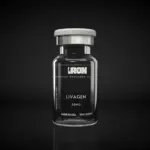 Livagen 20 MG
Livagen 20 MG
| 5 star | 0% | |
| 4 star | 0% | |
| 3 star | 0% | |
| 2 star | 0% | |
| 1 star | 0% |
Sorry, no reviews match your current selections

TrustScore 4.3

Edgar Guzman
2026-01-20
I have been taking glp3 for a few…
I have been taking glp3 for a few months and I've been losing about 38 close to 40 lb. I feel great. Lots of energy. I definitely recommend iron. It's to me the most trusted legit company customer service It's amazing. They always have discounts. They always have promotions so if you want to see results go with IRON that's for sure
JC
Jcoop
2026-01-16
Amazing service top-notch products
Amazing service top-notch products, I always receive my peptides within a few days of placing my order.
PV
Paola Vargas
2026-01-16
I have try peptides Reta and it’s so…
I have try peptides Reta and it’s so good helping me with better habits and eating well I feel more energy and my progress it’s easier , very focus and the guiadance on usage it’s so good any questions they are there for you . Def recommend
Customers Also Bought
Vial
- Mazdutide 10MG
- AICAR 50MG
- Lipo-C 10ML
- Survodutide 10MG
- LC-526 Metabolic Complex
- SSJ-9 Amino Matrix
- Epitalon
- L-Carnitine 600MG / 10ML
- Cerebrolysin 60MG
- Oxytocin 5mg
- SELANK
- 5-Amino-1MQ
- VIP
- L-Glutathione 1500MG
- Acetic Acid Solution
- HCG 10000iu
- BAC Water 30ML
- BAC Water 10ML
- GLOW 70MG
- IGF-1 LR3 1MG
- Thymalin
- HCG (5000iu)
- Wolverine Stack Peptides – BPC-157 (5mg) / TB-500 (5mg)
- BAC Water 3ML
- Melanotan II (MT-2) 10MG
- SLU-PP-332 (5MG)
- KPV 10MG
- GHK-Cu
- KLOW 80 – GHK-Cu (50mg) / KPV (10mg) / BPC-157 (10mg) / TB500 (10mg)
- Gonadorelin
- L-Glutathione (200MG)
- SEMAX (10MG)
- Cagrilintide (10MG)
- DSIP – Delta Sleep‑Inducing Peptide (5MG)
- RETA GLP-3
- Kisspeptin-10
- Ipamorelin / CJC-1295 No Dac 10mg
- Tirz GLP-2
- L-Glutathione (500mg)
- Pancragen 20 MG
- Prostamax 20 MG
- Livagen 20 MG
- Testagen 20 MG
- CardioCytogen 20 MG
- TB-4
- ARA‑290 10mg
- FOXO4-DRI (D-Retro-Inverso) 10mg
- SS-31 (10MG)
- Tesamorelin (10MG)
- AOD-9604
- IPAMORELIN 10MG
- PT-141 10MG
- NAD+
- TB-500 10MG
- SEMA GLP-1
- MOTS-C 10MG
- CJC-1295 (10MG)
- BPC-157 (10MG)
IRON
- Mazdutide 10MG
- AICAR 50MG
- Lipo-C 10ML
- Survodutide 10MG
- Methylene Blue 20MG
- 5-Amino-1MQ Capsules 50mg 60 cap
- LC-526 Metabolic Complex
- SSJ-9 Amino Matrix
- MITOCHONDRIAL POWER STACK
- SHRED MATRIX X4
- ANABOLIC SIGNALING MATRIX X3
- L-Carnitine 600MG / 10ML
- Cerebrolysin 60MG
- Oxytocin 5mg
- SELANK
- 5-Amino-1MQ
- VIP
- L-Glutathione 1500MG
- Acetic Acid Solution
- HCG 10000iu
- BAC Water 30ML
- BAC Water 10ML
- GLOW 70MG
- IGF-1 LR3 1MG
- Thymalin
- HCG (5000iu)
- Wolverine Stack Peptides – BPC-157 (5mg) / TB-500 (5mg)
- BAC Water 3ML
- Melanotan II (MT-2) 10MG
- SLU-PP-332 (5MG)
- KPV 10MG
- GHK-Cu
- KLOW 80 – GHK-Cu (50mg) / KPV (10mg) / BPC-157 (10mg) / TB500 (10mg)
- Gonadorelin
- L-Glutathione (200MG)
- SEMAX (10MG)
- Cagrilintide (10MG)
- DSIP – Delta Sleep‑Inducing Peptide (5MG)
- RETA GLP-3
- MK-ULTRA (MK-777)
- Kisspeptin-10
- Ipamorelin / CJC-1295 No Dac 10mg
- Tirz GLP-2
- L-Glutathione (500mg)
- N-Acetyl Selank Spray (30mg) 10ml
- N-acetyl Semax Spray (30mg) 10ml
- Pancragen 20 MG
- Prostamax 20 MG
- Livagen 20 MG
- Testagen 20 MG
- CardioCytogen 20 MG
- TB-4
- ARA‑290 10mg
- FOXO4-DRI (D-Retro-Inverso) 10mg
- KPV 250 MCG (60 Capsules)
- SLU-PP-332 (60 capsules, 250MCG)
- SS-31 (10MG)
- Tesamorelin (10MG)
- MK-677 12.5MG (60 capsules)
- AOD-9604
- IPAMORELIN 10MG
- Healing and Repair Research Blend (60 capsules)
- BPC-157 250MCG (60 capsules)
- Tesofensine 500MCG (100 capsules)
- PT-141 10MG
- NAD+
- TB-500 10MG
- SEMA GLP-1
- MOTS-C 10MG
- CJC-1295 (10MG)
- BPC-157 (10MG)

